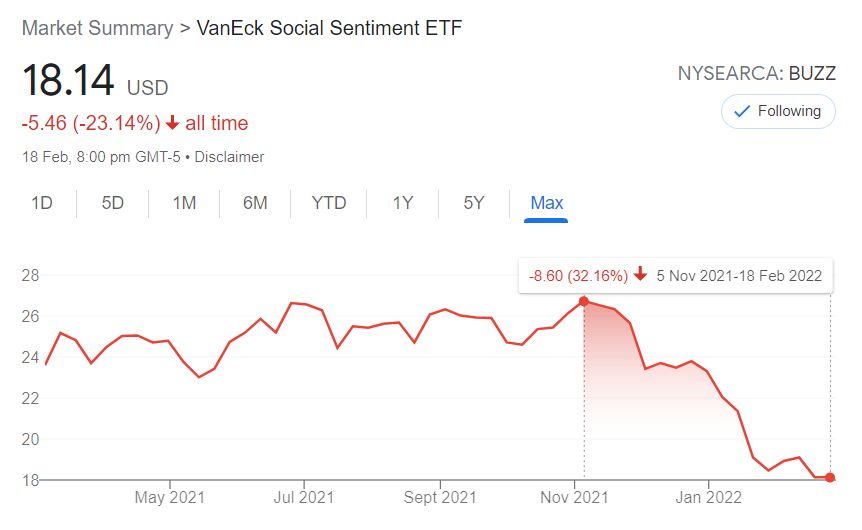Well, there are no two ways about it.
You either love David Portnoy or you hate him. With a passion.
Portnoy is a self-styled internet icon. A celebrity followed by legions of retail investors who use platforms like Reddit and Robinhood.
I previously talked about the extraordinary rise of their influence in my previous article on GameStop [NYSE:GME].

David Portnoy. Source: New York Post
These investors are optimistic and gung-ho. You will find them on social media, sharing hard-hitting stories about their triumphs and tears.
They hold nothing back.
Their street-slang vocabulary is fascinating.
- When they say ‘YOLO’, it’s an abbreviation for ‘You Only Live Once’. It’s about being willing to embrace extreme risk. Moving full speed ahead, torpedoes be damned.
- When they talk about ‘Diamond Hands’, it’s about buying heavily into speculative stocks, then holding on to them. They earn praise from their peers when they have the nerve to do this, regardless of how scary the ride becomes.

Source: Redbubble
A new breed of investor
What makes these investors so different from the mainstream?
Well, they don’t care about valuations. They will buy into expensive companies — or even loss-making companies — as long as it feels emotionally fulfilling.
What drives them is an intoxicating cocktail of FOMO — Fear of Missing Out — and devil-may-care thrills.
One explanation for their behaviour is the Covid pandemic. Based on what I’ve observed, the rise of these investors coincided with the shutdown of sporting events. With the usual betting opportunities denied to them, these punters may have turned their attention to the next best thing: the stock market.
David Portnoy’s popularity also appeared to have surged around the same time. He is the founder of Barstool Sports — a media outlet specialising in the coverage of sports betting.
When the pandemic lockdown hit, Portnoy was savvy enough to shift the conversation: ‘Instead of betting on sports events, why not bet on tech stocks?’
It made complete sense. What Portnoy did was swap one kind of gambling for another. And in the process, he acquired millions of fans, devoted enough to hang on to his every word. His commentary became gospel truth.
Which brings us to Portnoy’s latest big project: Social Sentiment ETF [NASDAQ:BUZZ].
Defying expert opinion
Traditionally, exchange traded funds (ETFs) have been put together by teams of professional analysts.
The idea is to create a basket of stocks that can be tracked and bought into at a single price point.
Generally speaking, there are three kinds of ETFs:
- ETFs tracking the performance of a broad index, like the NZX 50 or S&P 500
- ETFs tracking the performance of certain industries, like energy or banking
- ETFs tracking the performance of certain themes, like genomics or cybersecurity
Now, regardless of how an ETF is put together, you can expect a certain amount of research and due diligence to go into them, and rightfully so.
There are fundamentals to be looked at. Boxes to be ticked. Choices to be made.

Source: Fast Company
However, BUZZ ETF — which is backed and promoted by David Portnoy — has a decidedly contrarian approach. You could even call it a bizarre one.
It uses an artificial intelligence to crawl through social media. Through digital voodoo, it makes a calculation of which stocks are being discussed the most. Then it automatically loads them into the index.
As public sentiment shifts, so does the composition of the ETF.
So what you have is a revolving door of stocks, constantly changing.
Amazing? Wild? Insane?
The novelty factor of this can’t be ignored. From what we’ve been told, the operation of BUZZ appears to be largely hands-off. Human intervention is minimal. The system is geared to go for the hottest and most popular companies.
If that sounds brash and defiant, well, it is.
BUZZ really only has one iron-clad rule — it will only pick stocks with market capitalisations of at least $5 billion. But other than that, everything else is fair game.
This ETF is the perfect showcase for Portnoy’s emotive style. A guerrilla tactic that’s embraced by insurgent retail investors.
But here’s the big question: will BUZZ prove to be a good fit for mainstream investors looking for long-term fundamentals and a margin of safety?
The answer is decidedly no.
Just take a look at its performance so far. It’s been on a particularly bad run since 5 November, 2021:

Source: Google Finance
Pretty bumpy ride, huh?
But, then again, being safe has never been Portnoy’s goal. He prides himself as being a gambler. For him, it’s all about YOLO and Diamond Hands. Living life dangerously on the razor’s edge.
Only time will tell how BUZZ pans out, but I will continue to watch this space with keen interest.
Regards,
John Ling
Analyst, Wealth Morning
(This article is general in nature and should not be construed as any financial or investment advice. To obtain guidance for your specific situation, please seek independent financial advice.)





John is the Chief Investment Officer at Wealth Morning. His responsibilities include trading, client service, and compliance. He is an experienced investor and portfolio manager, trading both on his own account and assisting with high net-worth clients. In addition to contributing financial and geopolitical articles to this site, John is a bestselling author in his own right. His international thrillers have appeared on the USA Today and Amazon bestseller lists.